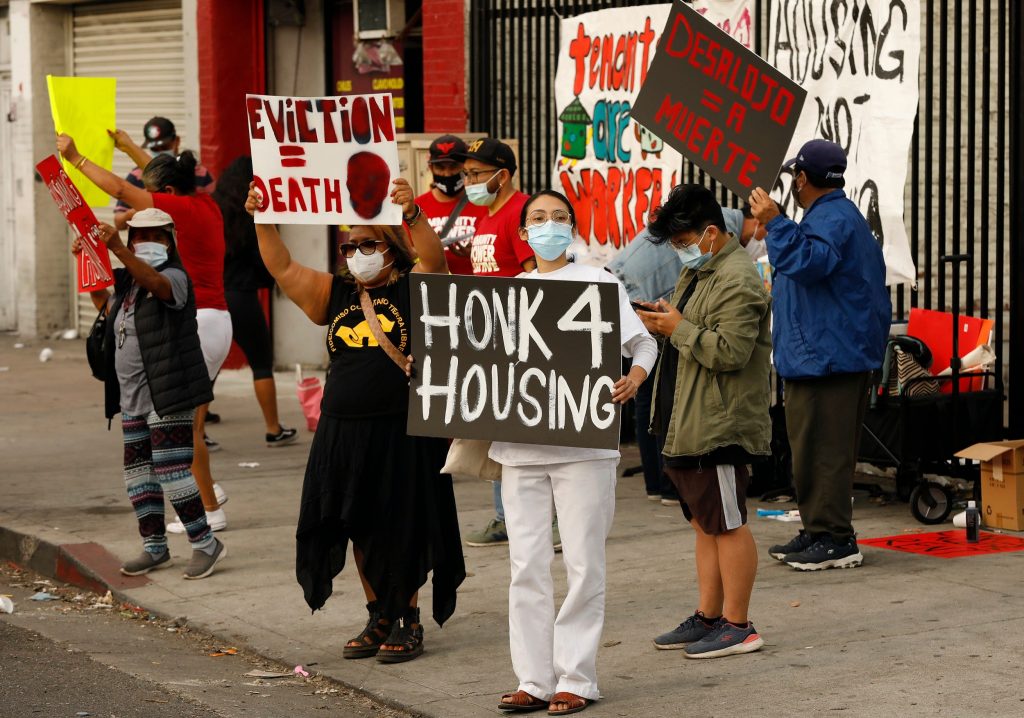- A House subcommittee report found four companies filed 14,700 evictions from March 2020 to July 2021.
- It alleges a Siegel executive gave a property manager a list of ways to "get rid of" a past-due tenant.
- The strategies included calling Child Protective Services, and replacing her AC unit with one that didn't work.
A newly published House subcommittee report alleges that an executive from The Siegel Group sent a Texas property manager a list of strategies to "get rid of" a tenant who was late on rent, including security knocking on the tenant's door "at least twice a night" and replacing an air conditioning unit with one that didn't work.
Another strategy from the executive, according to the report, was to call Child Protective Services on the tenant "if there are too many [occupants] and some are kids." The report pointed out that this situation would not require a call to CPS, and if the property manager had made the call, "it may have violated Texas criminal law prohibiting false reports of child abuse and neglect."
The report, released on Thursday from the Select Subcommittee on the Coronavirus Crisis, found that four corporate landlords "engaged in abusive tactics" to evict tenants during the eviction moratorium at the height of the coronavirus pandemic. The other three companies highlighted in the House investigation were Pretium Partners, Invitation Homes, and Ventron Management.
Altogether, the four companies filed 14,744 evictions between March 15, 2020 and July 29, 2021.
Siegel and Ventron did not immediately respond to Insider's request for comment.
While the companies filed the evictions, the report said the companies did so while they were all financially stable. Siegel, for example, saw almost no revenue decline, and received over $2 million in forgiven Paycheck Protection Program funds. All of the companies also "had policies or practices that allowed filing eviction cases even when a tenant had applied for rental assistance and was waiting for aid," the report said.
Invitation Homes, which reported record profits while it was filing evictions, told its government-backed creditor Fannie Mae that only 6% of its eviction filings in the six months before March 2021 saw tenants lose their homes. But the report clarifies that the 6% was only counting tenants evicted by court order. From October 2020 to March 2021, the company's data showed 27% of tenants lost housing through court-ordered evictions or because the tenants left after the eviction was filed.
In a response to Insider's request for comment, an Invitation Homes spokesperson said, "We responded transparently and in good faith to the Subcommittee's multiple requests over the past year. In a time when the focus should be on adding much-needed supply to the country's housing market, it's disappointing that the committee chose instead to pursue a fault-finding mission."
"The report clearly states that we did not engage in practices that were unlawful, a fact we know quite well since we work hard to follow the laws in all of our markets," the statement continued. "We have always worked with our residents to keep them in their homes, and we will continue to do so."
Almost a third of Invitation Homes' tenants lost their homes from March 15, 2020 through July 29, 2021 after the company filed to evict them, according to the report.
Pretium tenants faced the eviction process after falling $500 to $1,000 behind on rent, the report said. At the same time, the company was expanding with thousands of new properties.
In a response to Insider's request for comment, Pretium said, "As we have affirmed publicly on numerous occasions, we have always complied with the CDC moratorium – no resident covered by a valid CDC declaration has ever been evicted from our homes for non-payment of rent. In fact, we had voluntarily extended the CDC moratorium for residents covered by valid CDC declarations beyond its expiration. Nothing in today's report takes issue with either of these facts."
The CDC eviction moratorium ran from September 4, 2020 to August 26, 2021. In an effort to prevent people from losing housing in future emergencies, the report said Congress and other watchdog agencies should require "states and localities provide direct-to-tenant assistance to tenants with uncooperative landlords."
In a statement, the subcommittee's chair, Representative James Clyburn, said the companies' "abuses may have violated the law," and relevant findings would continue to face investigation and "potential enforcement action" from federal and state agencies such as the Consumer Financial Protection Bureau and the Federal Trade Commission.
